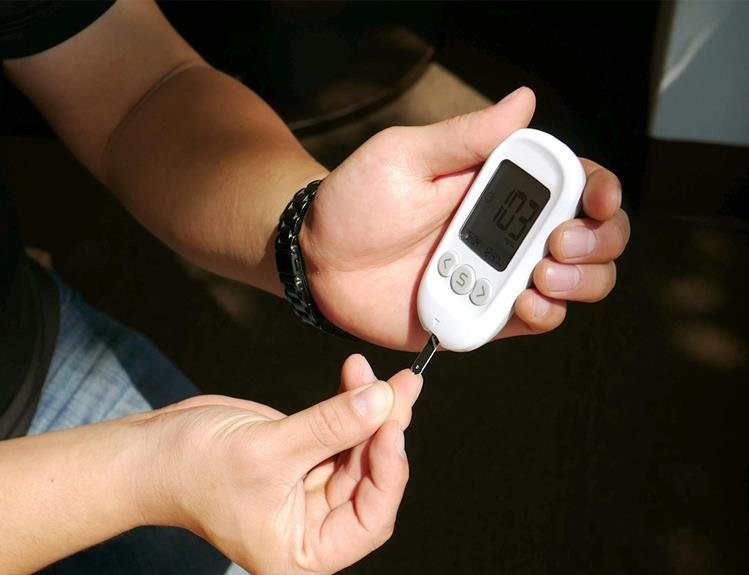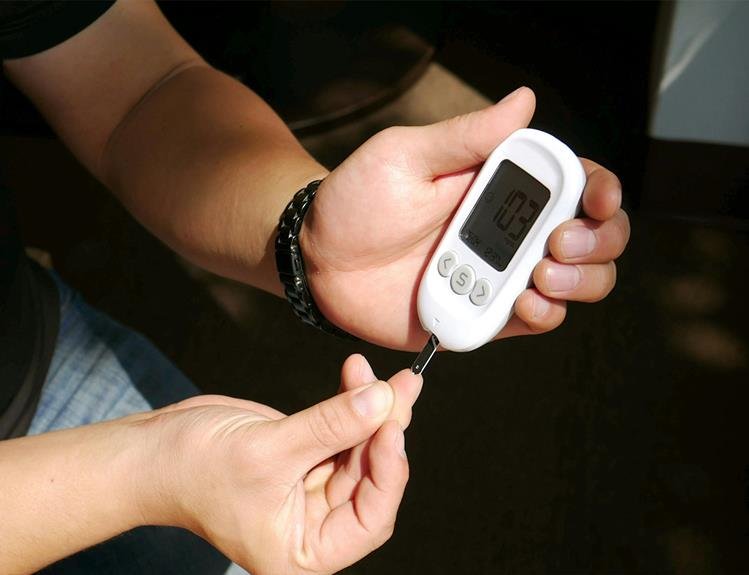The Link Between Blood Sugar Control and Neuropathy
Ever wondered how something as seemingly simple as blood sugar control could be intricately linked to a complex condition like neuropathy? Well, the connection might surprise you.
Understanding the impact of blood sugar levels on neuropathy is not just about numbers on a glucose monitor; it delves into a deeper physiological realm that affects nerve health in ways you may not have imagined.
Stay tuned to uncover the intricate relationship between blood sugar control and neuropathy and why it's crucial for your overall well-being.
The Role of Blood Sugar Levels
Maintaining stable blood sugar levels is crucial in managing neuropathy. When your blood sugar levels are consistently high, it can lead to nerve damage, exacerbating neuropathic symptoms. By keeping your blood sugar within a healthy range, you can potentially slow down the progression of neuropathy and reduce the severity of its symptoms.
To achieve stable blood sugar levels, it's essential to monitor your glucose levels regularly. This involves checking your blood sugar before and after meals, as well as adjusting your diet and medication as needed. Consistency is key in maintaining balanced blood sugar levels throughout the day.
In addition to monitoring your blood sugar, incorporating a well-rounded diet and regular exercise routine can greatly impact your glucose levels. Foods high in fiber, lean proteins, and healthy fats can help prevent spikes in blood sugar, while physical activity can improve insulin sensitivity, aiding in blood sugar control.
Understanding Neuropathy and Its Symptoms
High blood sugar levels can contribute to nerve damage, worsening neuropathic symptoms. Understanding neuropathy and its symptoms is crucial in managing the condition effectively.
Neuropathy refers to damage or dysfunction of one or more nerves, often resulting in pain, numbness, tingling, or weakness. Symptoms can vary depending on the type of neuropathy and the nerves affected. Peripheral neuropathy, the most common form, typically affects the feet and legs first, causing sensations like burning pain or sharp electric-like shocks.
Autonomic neuropathy may lead to digestive issues, dizziness, or problems regulating blood pressure. Proximal neuropathy can cause pain in the thighs, hips, or buttocks and may lead to muscle weakness. Focal neuropathy affects a specific nerve and can cause sudden, severe pain in a specific area.
Being aware of these symptoms and seeking prompt medical attention can help in diagnosing and managing neuropathy effectively.
Impact of Uncontrolled Blood Sugar
Uncontrolled blood sugar levels significantly impact the progression and severity of neuropathy symptoms. When your blood sugar levels are consistently high, it can damage the nerves throughout your body, leading to neuropathy. The excess sugar in your blood can cause inflammation and impair the blood vessels that supply nutrients and oxygen to your nerves. This damage can result in tingling, numbness, burning sensations, and pain in the affected areas.
Moreover, uncontrolled blood sugar can also weaken your immune system, making it harder for your body to repair nerve damage and fight off infections. As a result, individuals with diabetes who struggle to manage their blood sugar levels are more prone to developing advanced stages of neuropathy, which can lead to significant disability and decreased quality of life.
To prevent or slow down the progression of neuropathy, it's crucial to prioritize blood sugar management through healthy lifestyle choices, medication adherence, and regular monitoring to ensure that your levels stay within the target range recommended by your healthcare provider.
Strategies for Blood Sugar Management
To effectively manage your blood sugar levels and mitigate the progression of neuropathy, focus on implementing proactive strategies that promote stable glucose control. Start by monitoring your carbohydrate intake and opting for complex carbohydrates like whole grains, fruits, and vegetables over simple sugars.
Regular physical activity is crucial in regulating blood sugar levels, so aim for at least 30 minutes of exercise most days of the week. Additionally, stay hydrated and limit alcohol consumption, as both can impact blood sugar levels. Stress management techniques such as mindfulness, yoga, or deep breathing exercises can also help in stabilizing glucose levels.
Consistency is key in blood sugar management, so try to eat meals and snacks at the same time each day. Avoid skipping meals, as this can cause fluctuations in blood sugar. Work closely with your healthcare provider to develop a personalized diabetes management plan that includes regular blood sugar monitoring and medication management.
Importance of Monitoring Neuropathy Progression
Monitoring the progression of neuropathy is essential for understanding how the condition is evolving and to guide appropriate interventions. Regular monitoring allows you to track changes in symptoms, nerve function, and overall quality of life.
By closely observing the advancement of neuropathy, you can identify any worsening of symptoms or complications early on, enabling prompt adjustments to your treatment plan. Tracking progression also helps you and your healthcare team evaluate the effectiveness of current interventions and make informed decisions about potential modifications.
Moreover, monitoring neuropathy over time provides valuable insights into how your body is responding to treatment and whether adjustments are needed to better manage the condition. Through consistent monitoring, you can proactively address any developments in neuropathy, enhancing your ability to maintain optimal nerve health and overall well-being.
Frequently Asked Questions
Can Neuropathy Be Reversed With Strict Blood Sugar Control?
To reverse neuropathy, focus on strict blood sugar control. Monitor levels regularly, adhere to dietary guidelines, and follow prescribed treatments. Consistent efforts can improve symptoms and potentially reverse neuropathy, enhancing overall quality of life.
Are There Any Natural Remedies or Supplements That Can Help Improve Neuropathy Symptoms?
When tackling neuropathy symptoms, explore natural remedies and supplements. Some may ease discomfort and improve quality of life. Experiment cautiously and consult professionals for guidance. Your well-being matters; seek solutions that suit you best.
How Does Alcohol Consumption Affect Blood Sugar Levels and Neuropathy?
Drinking alcohol can impact blood sugar levels and worsen neuropathy symptoms. It can lead to fluctuations in glucose levels, causing issues with control. Limit alcohol intake, monitor your levels closely, and consult with your healthcare provider for guidance.
Is There a Correlation Between Neuropathy and Mental Health Conditions Such as Anxiety or Depression?
When it comes to neuropathy and mental health conditions like anxiety or depression, studies show that about 20-30% of individuals with neuropathy also experience symptoms of anxiety or depression. Managing both conditions is crucial for overall well-being.
Are There Specific Exercises or Physical Therapy Techniques That Can Help Manage Neuropathy Symptoms?
To manage neuropathy symptoms, consider specific exercises or physical therapy techniques. These activities can help alleviate discomfort and improve mobility. Consult a healthcare professional for personalized recommendations based on your condition and needs.
Conclusion
So, now you know the crucial link between blood sugar control and neuropathy. Remember, 'an ounce of prevention is worth a pound of cure.'
By managing your blood sugar levels effectively, you can reduce the risk of developing neuropathy and its debilitating symptoms. Stay proactive, monitor your progress, and make healthy choices to safeguard your nerve health.
Your future self will thank you for taking control of your health today.






